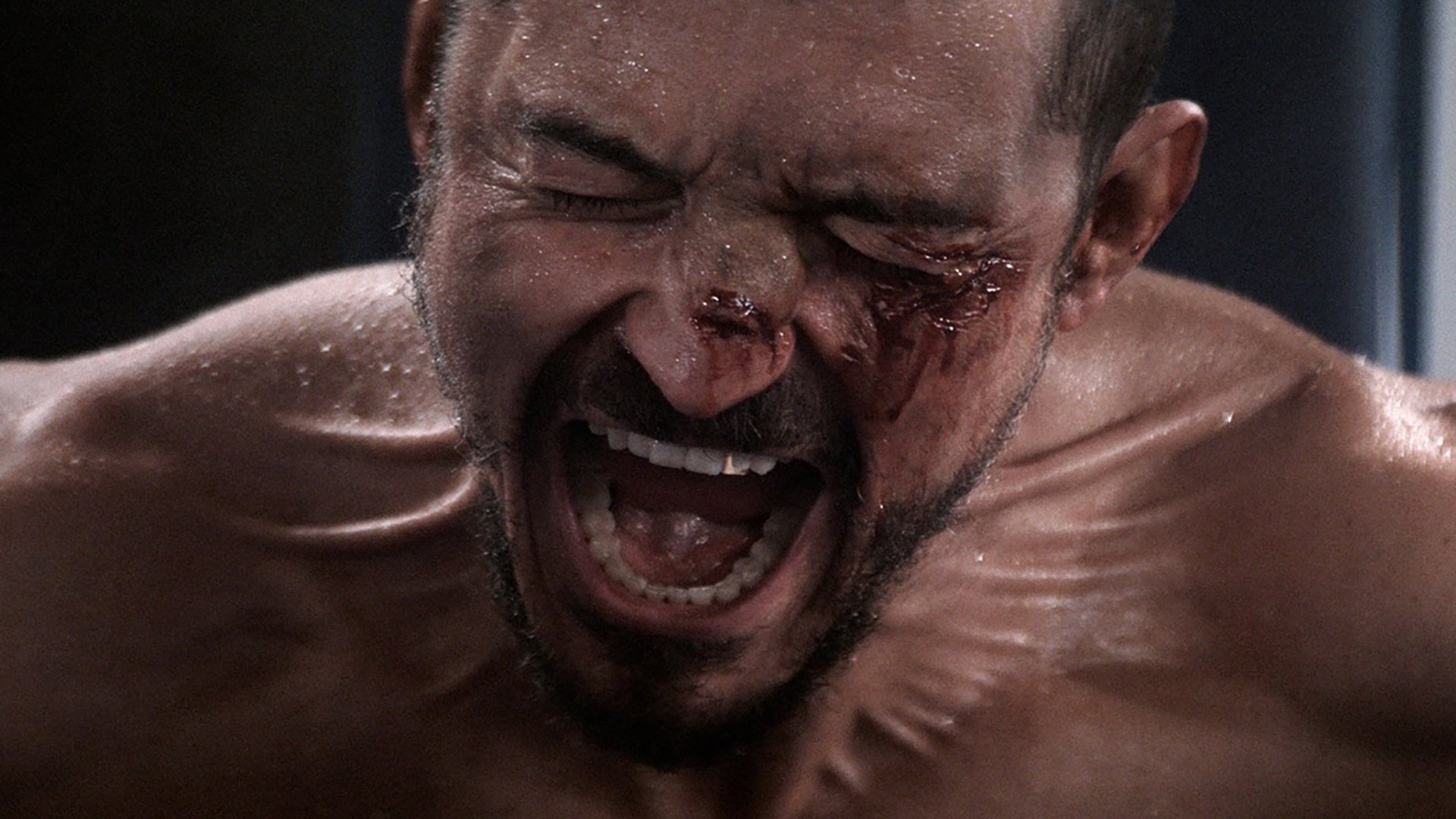- Published on
The Cut (2024) TIFF24 Review

At the TIFF24 premiere of The Cut (2024), the cast and crew were asked to talk about their connections to boxing and whether they were fans of the sport. John Turturro and Ed Kear gave the most convincing answers; Orlando Bloom and Caitríona Balfe mentioned the boxers they grew up watching; and the director, Sean Ellis, merely echoed the sentiments conveyed by Bloom and Balfe, ending with "yeah, I'm a fan." The problem is, after the screening, that statement of his seemed a little less than believable.
In the film, Orlando Bloom plays a retired Irish boxer who rekindles his boxing dreams after a title challenger pulled out of a fight. Being hysterically overweight, the boxer boards a plane to Vegas with his wife Caitlin (Caitríona Balfe), who's also been his coach. Having only days left to get ready, he finds himself in need of the help of a new conditioning coach (John Turturro).
The Cut isn't just any boxing film: there is no grand finale where blood gets splattered over the ring; no Russian-speaking villain posing as the nemesis for the protagonist; and no mentor/coach to give an exciting pre-walkout speech. Instead of focusing on the fight, the film shines its spotlight on a brutal and grotesque weight cut.
Time and again, there have always been outliers that prove sports flicks don't need to conclude with a grandiose match/game. The most obvious example would be Moneyball (2011), where the story follows how a great baseball team was built on a budget. Part of what makes Moneyball so great is that despite its loose reliance on sports mechanics as a stimulant (at least not to the extent of most typical sports films), it manages to retain the same strong character-building that has been a centerpiece for sports movies for decades. The boxer (yes, he isn't even named) in The Cut, despite a great performance by Bloom, shows up disappointingly empty as a shell of a character.
Credit where it's due, the film does make attempts at character-building with its fully loaded, to say the least, flashbacks. It feeds you everything you can think of when it comes to a tragic back story in film: war-setting, childhood trauma, questionable parenting, black and white colour-grading, melancholic score, slow-motion... It feels like watching Ellis check off every single box on an artistic tragedy gimmick list; the execution reeks of art for art's sake pretenses. These performative flashbacks feel so disconnected from Bloom's present-day boxer that they appear tragically out of place. We see hints of what might have inspired the boxer's bizarre decisions, but these scenes end up being ineffective in accomplishing what we expect them to do, which is to paint a larger picture that is, his character.
Despite its poorly-written characters, the film is fortunate enough to be held together by strong performances. Orlando Bloom does a great job embodying the pain and drowsiness caused by the weight cut. With parallels drawn between the film and Black Swan (2010), Bloom effectively captures the disorientation and powerlessness of an unstable psyche. Caitríona Balfe excels as a coach slowly losing the grip on her fighter. Even though she wasn't given much to work with, Balfe is able to paint a picture of someone who's been through thick and thin with the protagonist. John Turturro continues to treat us to an intimidating villain performance we would expect from him after The Batman (2022). He is perfectly convincing even though his character is evil enough to the point of ridiculousness.
It is thanks to the performances that the film can successfully dip in and out of the boxer's hallucinations. At parts, the film feels like a body horror as the protagonist takes extreme measures to accomplish his weight-loss goals. Bundled together, these two elements help induce tiredness in the audience who has to sit through countless of these short and surreal moments. Some of these stints work; others don't because they feel stuffed in and forced. Yet, through the visual fatigue they create, these moments do a pretty good job of rendering how broken and stale the boxer becomes.
If you take a step back though, and if you know even a tiny bit about combat sports in general, this exhausting weight cut serving as the film's premise is just laughably unrealistic. No one would ever be asked to lose that amount of weight in a matter of days, ever. Of course, the "that's why it's a movie" argument still stands, but part of what makes sports movies so emotionally stimulating is that on a human level, they are grounded on reality. Perhaps it worked better for someone else, but the premise was too dismissive for any of the boxer's actions to appear consequential. Even if the people behind the film are the boxing enthusiasts they claimed to be, it is hard for me to believe that they made this movie for boxing fans.
The Cut, in the end, feels like a boxing story moulded to fit under the unreliable narrator, Black-Swan-esque, arthouse structure told by a director who is less interested in the sport than fitting in every single gimmick to make it all work. It's a win, though, for anyone who wants to see Orlando Bloom deliver one of the best performances of his career.
